Comedian Frankie Boyle is facing criticism for allegedly making a ‘rape joke’ about TV presenter Holly Willoughby.
Audience members who attended his set at the Latitude festival in Suffolk recall part of the joke as: “I’d obviously kill her and rape her afterwards. I’m joking – I’d rape her first.’’
At the weekend, he responded to the backlash. He took to Twitter to say:
“More grief from the Daily Mail. The joke they ‘quote’ is garbled nonsense, a concept and wording no comic would ever use. There is a very long routine in my show which concludes that certain jokes are probably a product of toxic masculinity. You’d struggle to be offended.’’
When he was asked about the joke during an event to launch his new book, Frankie Boyle reiterated his claim that the quote had been taken out of context.
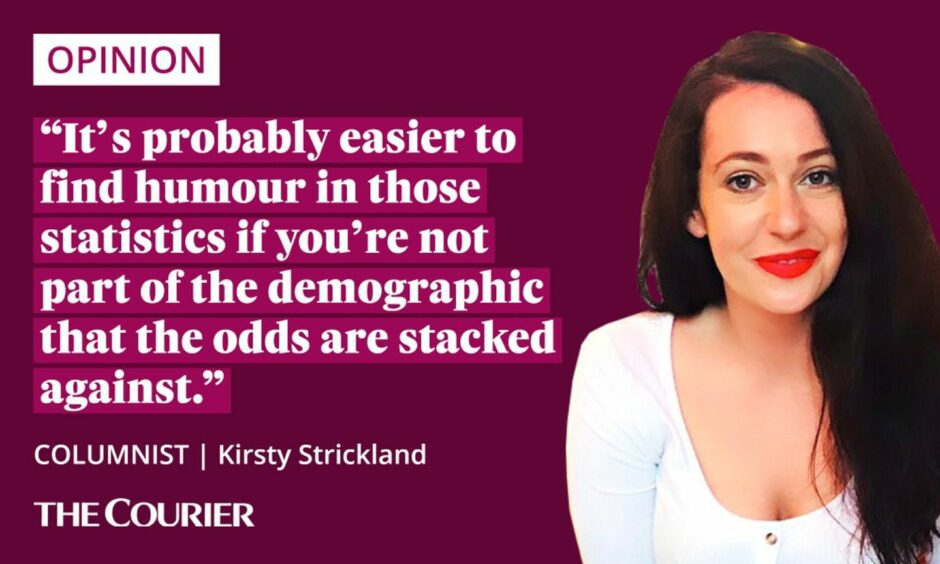
“Can I just say, my routine about raping and f*****g Holly Willoughby was part of a very long routine about whether or not it’s OK to do a joke about that, and I look at it from both sides, there are pluses and minuses” he said.
Frankie Boyle rape joke is following a pattern
Comedians making jokes about sexual violence is not a new concept.
It’s not even the first time Frankie Boyle himself has used men’s violence against women as a punchline.
In 2012 he said of cyclist Victoria Pendleton: “Victoria can lift twice her own bodyweight. Sexy, as it means she still wouldn’t be able to throw me off.’’
In 2011, Ofcom upheld a complaint against Channel 4 for broadcasting a repulsive joke Boyle made about Katie Price and her disabled son Harvey, who was eight years old at the time.
Call me an easily-offended snowflake, but I’m not going to repeat the ‘joke’ in question, other than to say it included references to sexual violence and incest.
This latest controversy has re-ignited the well-trodden debate about comedy and free speech.
Can jokes about rape ever be funny? Can they be clever and thought-provoking, if performed by a lefty comedian who understands concepts like ‘toxic masculinity?’
I don’t think so.
Nothing funny in these statistics
Jokes about sexual violence are shocking not because women are delicate creatures too sensitive to appreciate comedy that pushes the boundaries, but because violence against women is so depressingly routine.
If 100 women gather in a room to watch a comedy set at the upcoming Edinburgh Fringe Festival, roughly 33 of them will either have already experienced physical or sexual violence, or will in their lifetime.
That’s according to global research published by the World Health Organisation last year.
Papers like the Daily Mail are outraged by “safe space” comedy and all for free speech, until it’s routines reflecting on things like stereotyping and toxic masculinity, or taking ideas into places where they can’t be used to churn out clickbait.
— Frankie Boyle (@frankieboyle) July 30, 2022
In Scotland, sexual crimes (overwhelmingly perpetrated by men, against women) are at their highest level since 1971.
It’s probably easier to find humour in those statistics if you’re not part of the demographic that the odds are stacked against.
Comedians are free to make whatever jokes they like about whatever subject they like, including violence against women.
They are free to claim that their rape jokes are not in fact a cheap gag at an easy target, but an exploration of gender inequality and the societal rot that means that 50% of the population lives in perpetual fear of violence from the other.
But they shouldn’t be surprised when some people find those jokes repugnant.
Or when women don’t see much difference between a clumsily-delivered rape joke shared by drunk men in a pub and one performed by a professional comedian headlining a sell-out show.
Sexual violence against women is no laughing matter
It doesn’t matter whether the butt of the joke is a celebrity woman who the public love to hate, objectify or troll.
Or whether the punchline comes at the expense of all women, for having the audacity to exist in bodies that make them the target of violence from men they love or men they’ve never met.
The effect is the same. The trivialisation of an issue that, if we lived in a truly equal society, would horrify and enrage us far too much to ever make jokes about.
When I see performatively-edgy quips about violence against women on Twitter, in newspapers or on a Netflix comedy special, I’m not offended.
I see people are upset about Frankie Boyle telling a joke without actually hearing the joke first.
— Dave (@vi079) July 31, 2022
I’m not even surprised. But there is a part of me that is saddened.
Because it’s a reminder that the reality of women’s lives still isn’t properly understood, let alone respected enough to be considered off-limits for cheap laughs.
Frankie Boyle rape joke doesn’t need explaining
Since the Frankie Boyle controversy, some men have helpfully taken to social media to explain the concept of comedy to the clueless women – and to let them know why their revulsion at jokes about sexual violence is misguided.
They think that if women could only grasp the complicated nuances of different genres of rape jokes then they’d be able to overcome their squeamishness and laugh along too.
It doesn’t seem to occur to them that we understand these jokes and the motivation behind them perfectly well.
They’re just a bit too close to home to ever be funny.
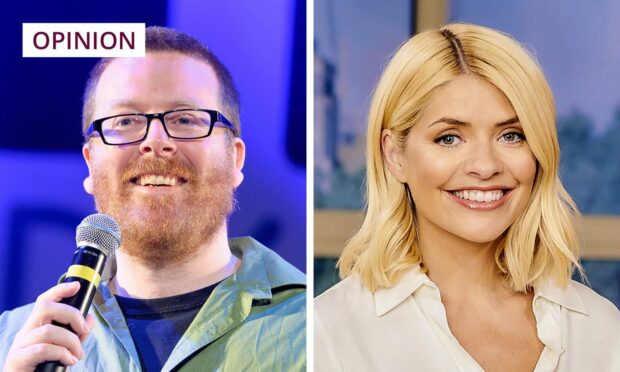

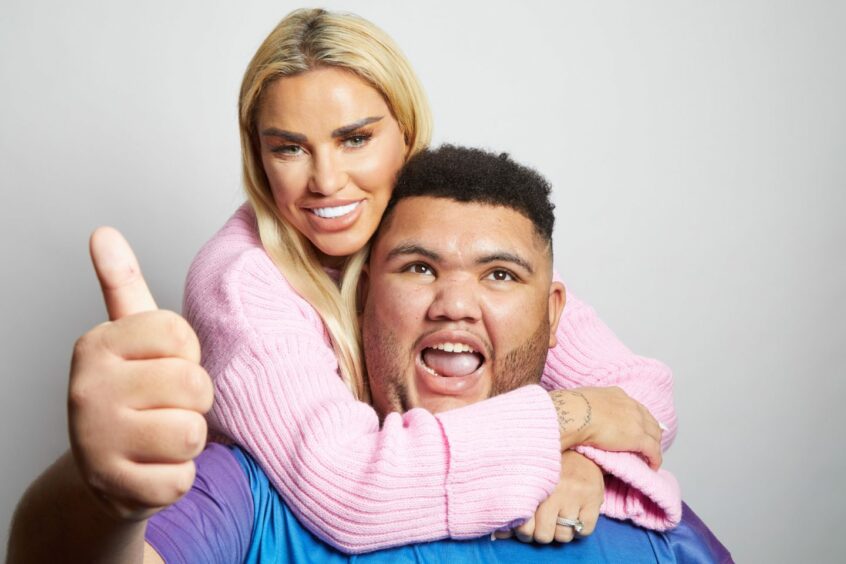
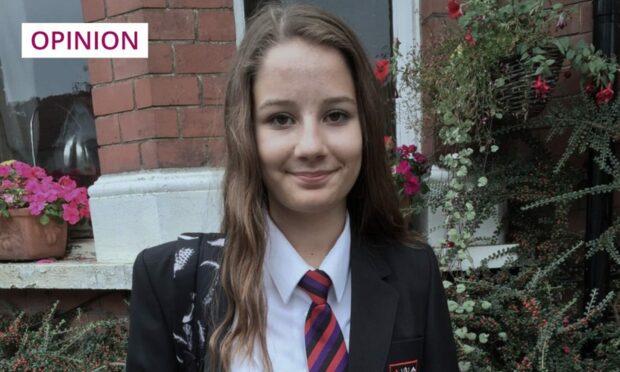
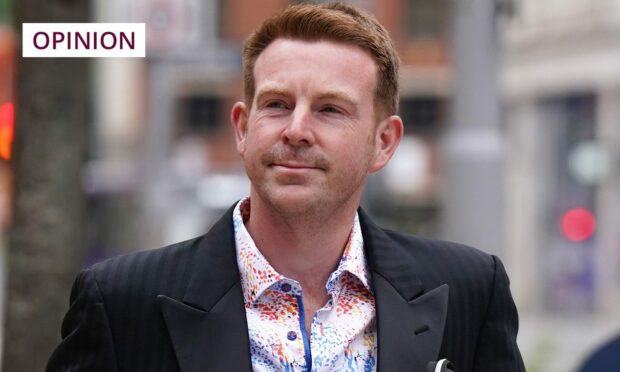

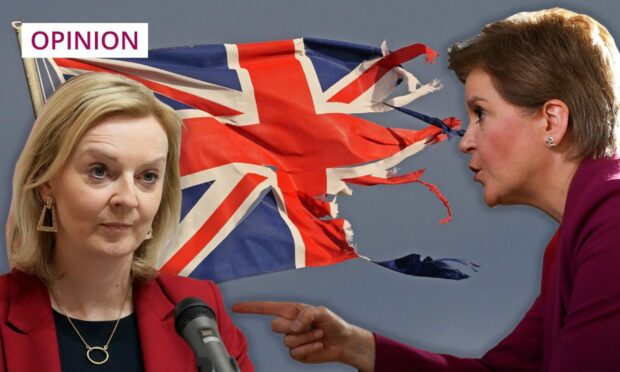

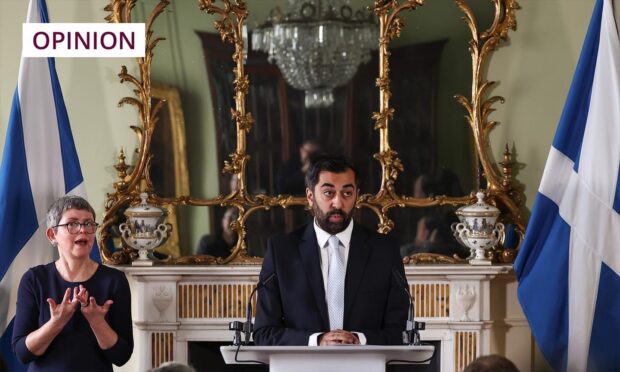
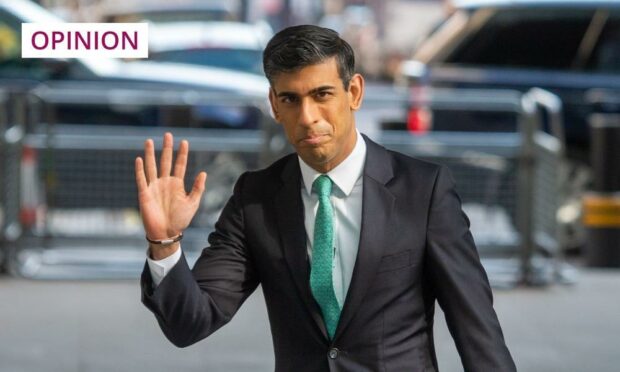
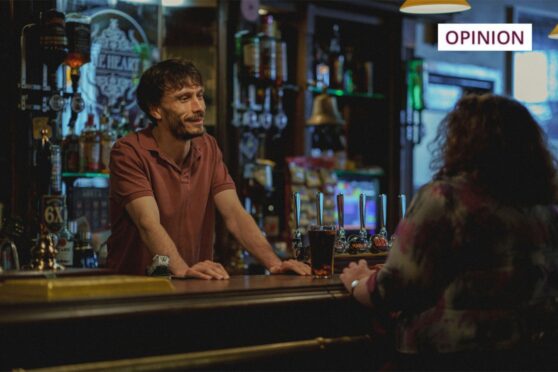
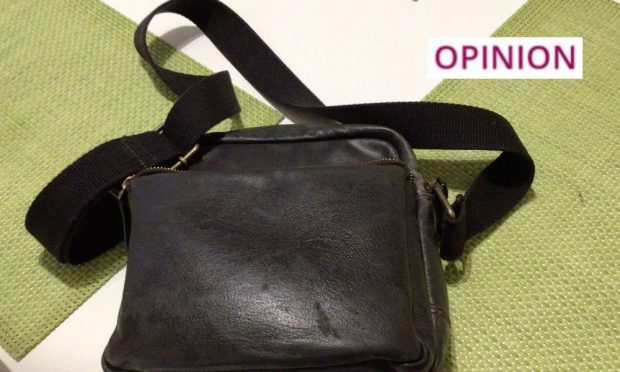
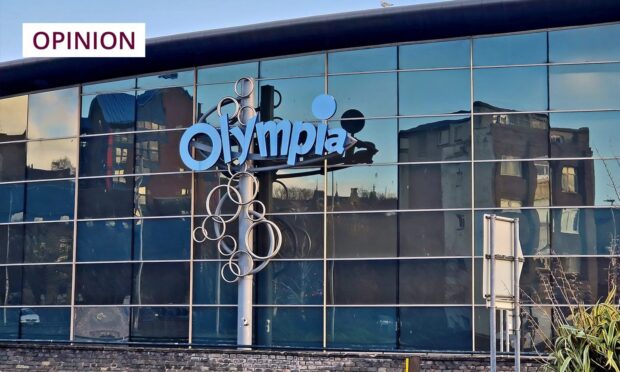
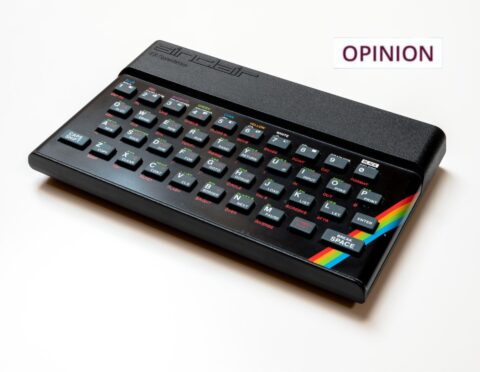
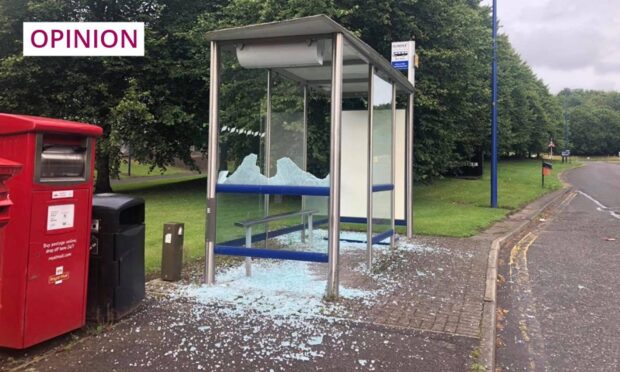
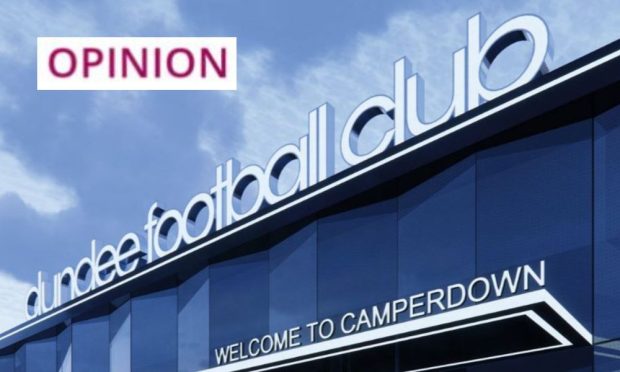
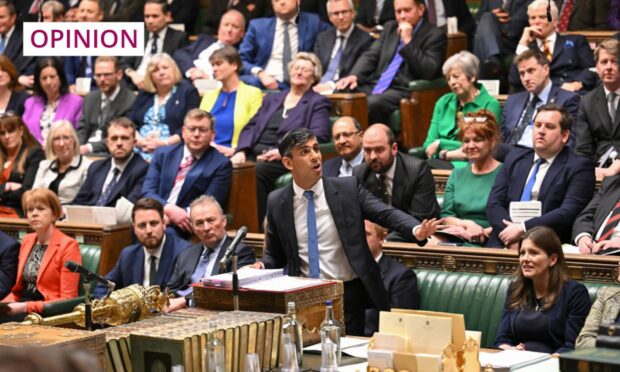
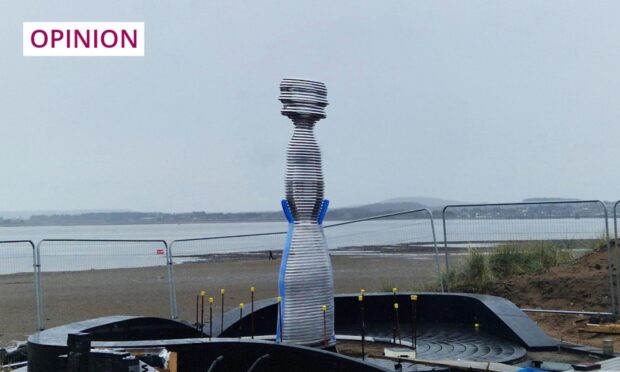
Conversation